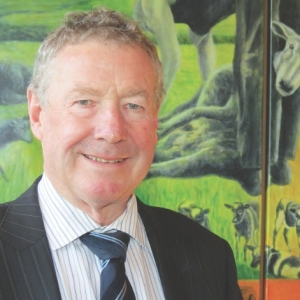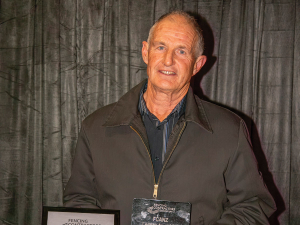The company made a net operating profit of $2.5 million for the half year ending December 31, 2012 and was projecting a full-year result of $6-$8m. But because of “the worst drought in many years” it now says it is unlikely to return a profit or pay a full-year dividend.
The $2.5m first-half profit was down from $11m in the first half of 2011/12 due to softer farm product prices, “but production increased, operating expenses were tightly controlled and major redevelopments remained on track,” the company says.
“Dairy and meat producers will generally have lower returns in 2012/13 due to softer international market prices and the relatively high New Zealand dollar,” the directors said in the half-year report. “We have foreseen these developments and focused on what Landcorp can manage – operating expenditure and continued improvement in our farming systems with knowledge, technology and skilled people.”
However, since the impact of the drought, chief executive Chris Kelly says Landcorp is now actively managing its 119 farms to ensure stock welfare is not compromised. With destocking where necessary, judicious use of supplements and careful pasture management, they hope to minimise the impact of the drought on next season’s production.
Total revenues to December 31 were down 7.4% to $95.4 million reflecting the general easing in dairy, meat and wool prices. Milk revenue fell 10.7% to $47.3 million despite production growth, while livestock revenue was down 5.3% to $43.8 million. Wool, forestry and other revenues also eased.
While growing conditions in the first half before the drought were generally favourable, lamb production was impacted by spring snow in part of Otago and Southland. Overall the South Island lambing rate fell to 131%, with production almost 15,000 lambs lower than budget. In contrast North Island lambing rose to 145%.
Landcorp’s milk production continued to increase in the first half – up 6% on the corresponding period in 2011/12.
The partnership with Chinese company Shanghai Pengxin for the operation and development of 16 former Crafar farms began on November 30. Landcorp has now spent about $21.4m on livestock for the farms in the central North Island and Manawatu. Plans for the farms, totalling 5689ha, include further spending by Shanghai Pengxin to lift productivity and starting a Landcorp-led training programme from 2014/15.
Landcorp is also working with Wairakei Pastoral Ltd on further development of the six-dairy-unit Wairakei Estate near Taupo which currently carries 7000 cows.
Landcorp also expects its lamb supply to Tesco in the UK will be up 20% this year – from early December it was supplying 5000 lambs to specification each week.

















